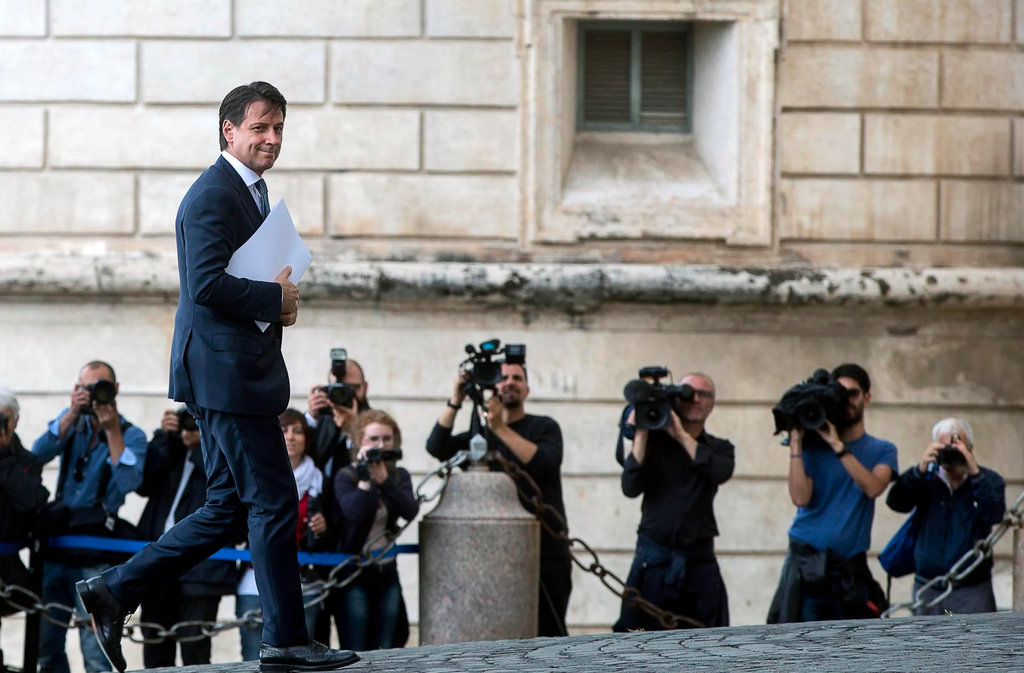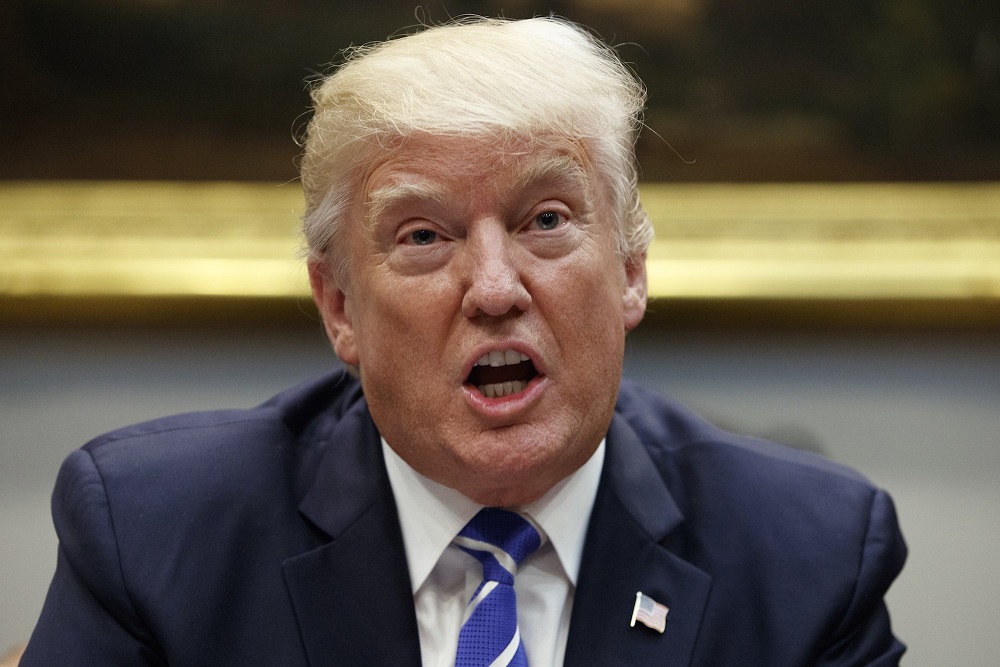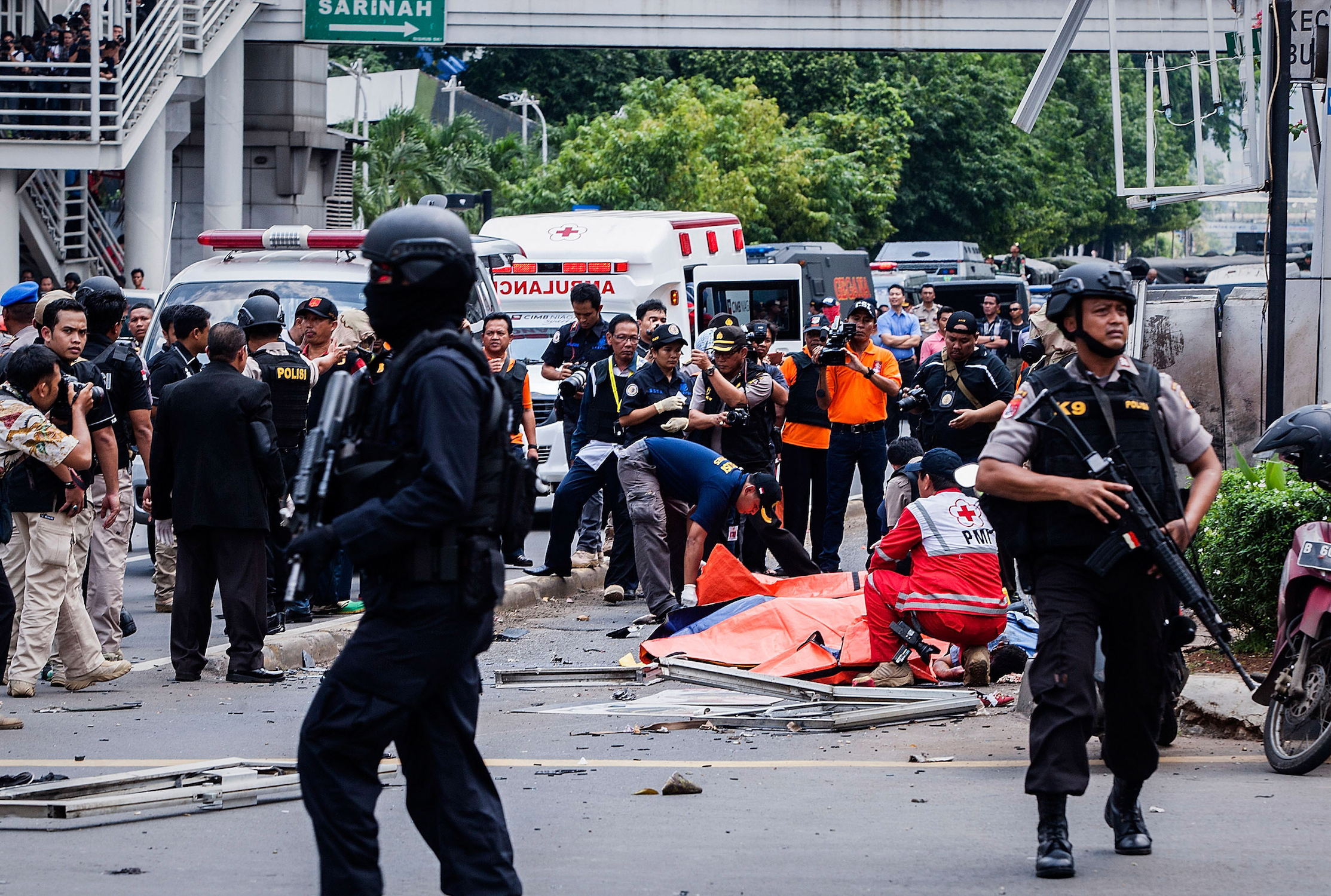Earlier this year during an electoral campaign, Italy’s populist politicians promised to halt illegal immigration, end crippling austerity measures and railed against the country’s political establishment and Brussels. These leaders are now tasked with forming the government in Italy, smashing the party system and posing a threat to the European integrity.
The president gave the new coalition, consisting of the anti-establishment Five Star Movement (M5S) and the far-right League, a mandate to form a government. Five days prior, the two populist parties published a coalition deal sending Brussels and the financial world into a panic.
The two young leaders, M5S’s Luigi di Maio (31) and League’s Matteo Salvini (45), received the go-ahead after the president approved their proposed prime minister, law professor Giuseppe Conte. Little is known about the 54-year-old academic, who has so far been unseen on Italy’s political front. The president still needs to approve the formation of the government.
Before the weekend the two populist parties published their 57-page joint plan, called “contract for a government of change.” The paper thumbs its nose at Brussels’ fiscal rules by calling for lower tax rates, a monthly basic income of €780 ($915) for every Italian and a rollback of the unpopular 2011 pension reform.
The bill for this extra spending is estimated to be around 100 million euros annually, yet the “contract” avoids explaining who will pocket the bill. Italy already has a public debt burden over twice as much E.U. regulations allow. The coalition’s plans increase government spending by almost six percent.
The plan demands revisions of the bloc’s Stability and Growth Pact, created to keep the euro stable by enforcing strict rules on government debts and budget deficits. It rejects E.U. austerity measures.
League’s strong anti-immigrant views are evident in the plan’s proposed crackdown on immigration: half a million undocumented migrants are set to be deported, dozens of detention centers will be opened and more E.U. support is demanded to stop North African migrant influx through Italy’s ports. Both parties expressed intent on renegotiating the Dublin Regulation, which requires migrants to be processed in their arrival E.U. state, which is often Italy or Greece.
The agreement calls for stronger ties with Moscow including the immediate lifting of the sanctions imposed on the country after the 2014 annexation of Crimea. M5S and League see Russia as a potential partner for the E.U. and NATO instead of an enemy and a military threat.
Ending political impasse
The “contract” ended the political deadlock the country of 60 million found itself in after the elections held early March. The outcome was largely perceived as a backlash against the establishment, with Matteo Renzi’s center-left Democratic Party and the center-right of former Prime Minister Silvio Berlusconi’s Forza Italia both losing a huge amount of support.
Di Maio’s anti-establishment M5S received almost a third of the votes and became the single largest party. Salvini’s anti-immigrant League emerged as the main political force in the center-right alliance that gained the most seats, but not the majority needed to govern.
The road to forming a government coalition was complicated and laborious. M5S denied any possibility of an alliance with Berlusconi’s Forza Italia. Since that party and League have been longtime allies, cooperation between just League and M5S but without Forza Italia did not seem to be an option. For a long time, the Italians were facing a return to the ballots.
After a political stalemate of almost two months, Berlusconi caused a breakthrough by stating that Forza Italia would no longer prevent a possible government between M5S and League. Almost two weeks later the new coalition had reached agreement on both a program and a prime minister.
Problems ahead
Last Friday, 94 percent of M5S’s members gave the program a green light in an online vote. A day later League supporters approved the plans. But even with the final agreement and the supporters of both parties giving their blessings, the Southern European country’s problems are far from over.
Italy is famous for pizza, fashion, and political instability. The justice system is chronically snail-paced, often resulting in criminals wriggling out of punishment. A quick Google of “Italy bureaucracy” reveals a guide explaining how to survive the country’s stifling administration.
The state will become the E.U.’s third-biggest economy after the U.K. leaves the bloc, yet Italy’s economy continues to struggle, with the economic growth among the slowest in Europe. The nation has a mountain of national debt that reaches 130 percent of the gross domestic product, more than double the E.U. regulations. In terms of euros, Italy’s public debt is the largest in the bloc.
Unemployment rates are high, especially among the youth with one-in-three Italians between 15 and 24 years not having a job. About 20 million Italians are at risk of poverty, many blaming the introduction of the euro in 2002.
Boosting growth
The biggest economic challenge is to boost growth, according to Emanuele Bracco, Senior Lecturer at the Lancaster University. With Italy’s high level of government debt, this cannot be achieved through the public spending program as proposed by M5S and League, he told The Globe Post.
“My personal take is that making civil services like schools, universities, public service provision, civil courts, and law enforcement more efficient is of paramount importance,” Bracco said. He expects the new Italian government to implement small measures in the next few months, as a gesture of proof to voters of their ability to act.
Lorenzo Pregliasco, a professor of political science at the University of Bologna, is convinced it is impossible to follow through on the entire plan because of its high costs. “I think we will move towards a situation where M5S and League can get a couple of low-cost things done, such as pension adjustment and a tougher stance on immigration,” he told The Globe Post. All the proposed extra spending combined will lead to a budget deficit of 9 percent, three times higher than the E.U. allows. “Absolutely crazy,” the professor said.
Confrontation with Brussels
While the final version of the coalition deal renounced some of the more extreme proposals that earlier leaked drafts contained, like a referendum on Italy’s E.U. or Eurozone membership, there are still many elements that will cause Brussels a headache.
“A lot will depend on what the future Italian government concretely does and which actions it puts into effect,” Pregliasco said. The government’s bid to renegotiate E.U. agreements is not likely to find a passageway, according to the professor, because change on European level requires the consent of the other member states.
“It is unlikely they are willing to give the Italian government more space on budget and fiscal responsibility,” Pregliasco said. “Italy’s new leaders will probably use it as a rhetoric with the domestic goal of political strategy and communication rather than an effective policy proposal.”
Lecturer Bracco said that if the government agreement would be fully enacted, it may put Italy and its debt in serious trouble. “I cannot imagine a scenario in which the E.U. appeases this government, for example, on budget rules or sharing of the refugee burden.”
He expects the government to be short-lived, predicting elections could be called within a year. This would be in line with Italy’s past. Since the country transformed itself into a republic in 1946, it has rushed through 66 governments in only 72 years, neither of them living longer than just over a year on average.
M5S and League’s parliamentary victory marks the first time that one of the six founding members of the E.U. is led by anti-E.U. populists. As the bloc struggles against Brexit’s incoming blow, a quarrel between Brussels and Rome appears unavoidable.






















